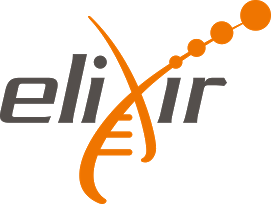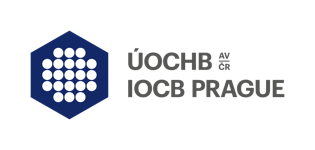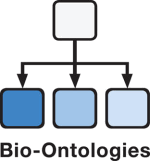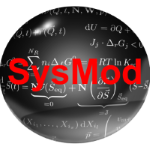Call for Proceedings - ISMB/ECCB 2017
Call for Proceedings Submission Site (Closed)
Proceedings Co-chairs: Niko Beerenwinkel, ETH Zurich, Basel, Switzerland; Yana Bromberg, Rutgers University, New Brunswick, United States
ISMB/ECCB 2017 brings together Bioinformaticians and Computational Biologists working in a wide range of disciplines, including molecular biology, biology, medicine, computer science, mathematics and statistics. Papers that demonstrate both the development of new computational techniques and their application to Molecular and Systems Biology, with significant outcomes to biomedical, agricultural, and environmental questions are especially encouraged.
| Proceedings Submission Key Dates | |
|---|---|
| Monday, December 19, 2016 | Call for Proceedings Opens |
| Thursday, January 26, 2017 | Proceedings Submission Deadline |
| Tuesday, February 28, 2017 | Conditional Acceptance Notification |
| Wednesday, March 22, 2017 | Revised Papers Deadline |
| Thursday, April 6, 2017 | Final Acceptance Notification |
Review Process:
Submissions will be subject to two rounds of reviews, allowing the authors to reply to the reviewer comments. In the first round the submissions will be classified into three categories: (a) accept/minor changes, (b) major changes, and (c) not accepted. Papers in the first category will be accepted without a second round of review. Authors of submissions in the second category will be given the opportunity to submit revised drafts based on the reviewer comments, with letters of reply to the reviewers outlining the main changes and/or giving counter arguments to the reviewer points. We expect the majority of papers to fall in categories (a) and (c), with category (b) reserved for papers that the reviewers identified as strong but with substantial issues that need to be addressed. Among the resubmitted papers, the second round of review will select the most suitable papers for presentation. These will be published in the Bioinformatics journal and presented at the conference. The authors of submissions that will not be accepted in the second round will be given the opportunity to be redirected to an on-line issue of the Bioinformatics journal (fully citable; equal to regular publication in this journal), subjected to the Editorial considerations of Bioinformatics.
The presentation of talks at ISMB/ECCB is by COSI thematic area. However if your submission does not fit in any COSI theme please submit to 'Other Topic' below.
Submitters will choose the track area best suited to their paper during the submission process. Submissions to the proceedings track require one member of the author group to present a talk at the conference. Please note a presenting author can present only one oral talk at ISMB/ECCB 2017.
| Area | Area Chair |
|---|---|
| Structural bioinformatics and computational biophysics (3Dsig)
3DSIG focuses on structural bioinformatics and computational biophysics. It is impossible to fully understand biological systems without understanding the 3D structure of their constituting parts and their interactions. As such the topics relevant for 3DSIG are wide and include, but are not restricted to Structure-based drug discovery including polypharmacology and network pharmacology; Structure representation, classification and prediction; Structure-based function prediction; Docking, analysis, prediction and simulation of biomolecular interactions such as protein-protein, protein-ligand and protein-nucleic-acid; Protein dynamics and disorder; Evolution studied through structures; Application of structure to systems biology; Macromolecular assemblies; Structural genomics; 3D databases and data mining; Molecular visualization; Relevant methods of structure determination particularly hybrid methods; Prediction and analysis of protein domains; Membrane protein structure analysis and prediction; The structural basis of immunology. Keywords: Drug-discovery; Structure representation/classification/prediction; Structural basis of macromolecular function; Prediction and simulation of biomolecular interactions; Dynamics of biological macromolecules; Evolution studied through structures; Structural systems biology/pharmacology; 3D visualisation/data mining/databases; Structure-based protein engineering; Structural basis of human diseases |
This email address is being protected from spambots. You need JavaScript enabled to view it., This email address is being protected from spambots. You need JavaScript enabled to view it., This email address is being protected from spambots. You need JavaScript enabled to view it. |
| Bio-Ontologies
Bio-Ontologies Special Interest Group covers the latest and most innovative research in the application of ontologies and more generally the organization, presentation and dissemination of knowledge in biomedicine and the life sciences.
Keywords: Ontology; Knowledge representation; Data integration; Automated reasoning; Text mining: Machine learning; Biocuration; Semantic web; Deep phenotyping; Learning health system |
This email address is being protected from spambots. You need JavaScript enabled to view it. |
| BioVis
The BioVis aims to educate, inspire, and engage bioinformatics and biology researchers in state-of-the-art visualization research and visualization researchers in problems in biological data visualization. The rapid adoption of data-intensive biology approaches creates enormous challenges for computational visualization techniques, which are needed to enable researchers to gain insight from their large and highly complex data sets.
Keywords:Biological data visualization; Visual data analysis; Visualization tools and libraries; Usability of visualization, genome and sequence data visualization; Network and pathway visualization; Multivariate data visualization; Imaging data visualization; Workflow and process visualization; Metadata visualization |
This email address is being protected from spambots. You need JavaScript enabled to view it., This email address is being protected from spambots. You need JavaScript enabled to view it. |
| CAMDA
The Critical Assessment of Massive Data Analysis (CAMDA) sessions highlight and compare the latest methods and results in an international data analysis contest, with this year's topics including: (1) a cancer data-integration challenge for 500 children patients (FDA SEQC), (2) a meta-genomics challenge comparing swabs from subway stations in multiple cities (MetaSUB), and (3) a meta-genomics signal level challenge in Oxford Nanopore 'wiggle space'.
Keywords: International data analysis contest; Community wide experiment; Critical assessment of massive data analysis; Meta-genomics, cancer, data integration, gene expression, genomic deletions and duplications; Next-generation sequencing / RNA-seq, microarrays |
This email address is being protected from spambots. You need JavaScript enabled to view it. |
| Function
Function COSI brings together computational biologists, experimental biologists, biocurators, and others who are dealing with the important problem of gene and gene product function prediction, to share ideas and create collaborations. Also, we are conducting a multi-year Critical Assessment of protein Function Annotation, or CAFA, experiment.
Keywords: Protein function; Ontologies; Machine learning; Computational challenge; Annotation |
This email address is being protected from spambots. You need JavaScript enabled to view it. |
| High Throughput Sequencing Algorithms and Applications (HitSeq)
HiTSeq is a special interest group devoted to the latest advances in computational techniques for the analysis of high-throughput sequencing (HTS) data. Sessions will be devoted to discussing the latest advances in computational techniques for the analysis of high-throughput sequencing (HTS) datasets and will provide a forum for in-depth presentations of the methods and discussions among the academic and industry scientists working in this field. We seek contributions on any topic involving HTS data analysis including: genome assembly and haplotype phasing; transcriptome analysis; genetics and epigenetics variation; metagenomics and microbiome analysis; and new HTS platform data analysis (e.g. synthetic reads, long reads, nanopore). In addition to general sessions, we propose to have two specialized sessions to focus on current hot topics: a) long sequencing and mapping techniques, b) single cell sequencing applications, c) non-linear genome representations. Both of these topics have generated an enormous amount of interest recently. Keywords: High-throughput sequencing; NGS; Algorithms; Read mapping; Data structures, Variant calling; DNA sequencing; RNA-seq; Single cell; Precision medicine |
This email address is being protected from spambots. You need JavaScript enabled to view it. |
| RNA
This RNA COSI covers the full range of research topics in the field of RNA Biology, from computational and high-throughput experimental methods development to their application in different aspects of RNA processing, structure, and function. Focusing on two major areas: (1) the development of computational and high-throughput experimental methods, and (2) the application of such methods to break new grounds in the study of RNA biology and disease, meshing together different aspects of Computational RNA Biology, and promoting cross-disciplinary collaborative research.
Keywords: Transcriptomics; RNA processing; Post-transcriptional regulation; Non-coding RNA; RNA 2D/3D structure, alternative splicing, alternative polyadenylation; RNA editing translation degradation and localization; Protein-RNA interactions; Genetic variants effect on RNA processing; RNA and disease |
This email address is being protected from spambots. You need JavaScript enabled to view it., This email address is being protected from spambots. You need JavaScript enabled to view it. |
| Network Biology
Network Biology covers new developments across this important and still burgeoning field; focusing on two major areas: (1) the development of network-related tools and resources, and (2) the application of network analysis and visualization in the study of biology and medicine. The session will provide a unique interface between tool developers and users in the field of network biology, and will bring into focus the current state of the field, its future promise and how to get there.
Keywords: Molecular networks; Molecular interactions; Network analysis; Network visualization; Network alignment; Network reconstruction; Heterogeneous networks; Diagnostic networks,: Network tools, Network databases |
This email address is being protected from spambots. You need JavaScript enabled to view it., This email address is being protected from spambots. You need JavaScript enabled to view it. |
| Regulatory Genomics (RegGenSig)
Regulatory genomics involves the study of the genomic "control system," which determines how, when and where to activate the "blueprint" encoded in the genome. Regulatory genomics is the topic of much research activity worldwide. RegGenSIG focuses on bioinformatics for regulatory genomics and will foster a collaborative community wherein scientists convene to solve difficult research problems in all areas of computational regulatory genomics.
Keywords and phrases: Gene regulation; ChIP-seq, RNA-seq, ATAC-seq; Transcription factors; Enhancers; Chromatin; Gene promoters; Regulatory elements; Epigenetics; Regulatory motifs and modules; Epigenomics and chromatin state; Alternative splicing; Pathway analysis; Non-coding RNAs; Regulatory networks; Co-transcriptional, post-transcriptional, and translational regulation; Genetic, molecular, and phenotypic variation and human disease; The role of non-coding mutations in disease; DNA shape; Single-cell transcriptomics (and other single cell assays); 3D genomics (e.g., Hi-C and ChIA-PET); Epitranscriptomics; Regulatory evolution or comparative regulatory genomics |
This email address is being protected from spambots. You need JavaScript enabled to view it., This email address is being protected from spambots. You need JavaScript enabled to view it., This email address is being protected from spambots. You need JavaScript enabled to view it., This email address is being protected from spambots. You need JavaScript enabled to view it. |
| Computational Modeling of Biological Systems (SysMod)
SysMod aims to create a forum for systems modelers and bioinformaticians to discuss common research questions and methods. Focusing on the conjoint use of mathematical modeling and bioinformatics to understand biological systems functions and dysfunctions. SysMod is open to the full range of methods used in systems modeling, including qualitative and quantitative modeling, dynamical and steady-state modeling, as well all applications of systems modeling including basic science, bioengineering, and medicine.
Key words and phrases: Mathematical model; Numerical simulations; Whole genome metabolic models; Signalling pathways; Systems medicine; Quantitative systems pharmacology; Data and model integration; Model parametrization; Multi-scale models; Synthetic biology |
This email address is being protected from spambots. You need JavaScript enabled to view it. |
| Translational Medicine (TransMed)
TransMed covers the current developments in the field of clinical and translational medicine informatics and will explore the current status of computational biology approaches within the field of clinical and translational medicine. Large amounts of multi-omics, imaging (medical and molecular) and clinical data can now be captured for given patient populations. This opens the debate on current state-of-the-art data infrastructures for translational medicine data integration and analysis. TransMed will bring scientists from both academia and industry to exchange knowledge and foster networking, to help in building up of the translational medicine community.
Keywords: Translational medicine; Clinical and ‘omics data integration; Curation and harmonization; Stratification of patients; Informatics for integrating biology and the bedside; Medical informatics; Ontology-driven data representation; Patient centered outcomes research; Cohort data; Deep learning |
This email address is being protected from spambots. You need JavaScript enabled to view it., This email address is being protected from spambots. You need JavaScript enabled to view it. |
| VarI
The VarI COSI explores recent advances in the methodology for the annotation and analysis of genetic variants. Dedicated to the recent advances in the analysis and interpretation of the genetic variants, with an aim to organize a research network (VarI-COSI) facilitating the exchange of ideas and the establishment of new collaborations between researchers with different expertise. Broadly divided in two areas (“Genetic variants as markers: evolution, populations, GWAS” and “Genetic variants as effectors: function, structure, and regulation”) that encompass the four major research topics of the field: 1) Databases, data mining algorithms and visualization tools for variants analysis. 2) Methods for predicting regulatory/structural/functional impacts of SNVs. 3) Personal Genomics, GWAS studies and SNV prioritization. 4) Population genomics and phylogenetic analysis.
Keywords: Genetic variant; Functional impact; Pathogenic variant; Variant annotation, Machine learning, Gene prioritization; Protein structure; Protein stability; Regulatory variant; Gene network |
This email address is being protected from spambots. You need JavaScript enabled to view it., This email address is being protected from spambots. You need JavaScript enabled to view it., This email address is being protected from spambots. You need JavaScript enabled to view it. |
| Other Topics
Emerging Topics represents research areas that are not included in the above communities. Selected submissions will be programmed into parallel tracks.
|
This email address is being protected from spambots. You need JavaScript enabled to view it. This email address is being protected from spambots. You need JavaScript enabled to view it. |
Relevant computational techniques include, but are not limited to: machine learning; data mining; text analysis; pattern recognition; knowledge representation; databases; data modeling; combinatorics; stochastic modeling; string and graph algorithms; linguistic methods; robotics; constraint satisfaction; data visualization; parallel computation; data integration; modelling and simulation.
top
Papers will be assigned to COSI Track Areas and three reviews sought. Papers may be moved between areas as appropriate - this is often necessary for load balance and fit between areas during the review process. Accepted papers will be published as conference proceedings in an open access, online-only, section of a regular issue of the Bioinformatics journal with an electronic version distributed to conference delegates. The proceedings will be available online approximately one month prior to the conference opening.
Publication of the proceedings as an online part of the Bioinformatics journal will result in fully citable articles, indexed by Medline and ISI. See the conference proceedings for ISMB 2016 for an example of online-only publication by Oxford University Press.
ISMB/ECCB 2017 provides authors of accepted papers an oral presentation to provide an oral summary of their work. All presentations should be no longer than 15 minutes including 2-3 minutes for discussion.
Papers can be submitted in either a template-free format or in the format following the template for author submission to the OUP journal bioinformatics. If the OUP template is used the paper length must not exceed nine pages. If the template-free format is used the length of the paper must not exceed 12 pages (single space, 12 point font), including abstract, figures, tables, and bibliography. In either case, the paper must contain an abstract whose length does not exceed 250 words.
After acceptance papers will have to be formatted according to the layout style required by the OUP bioinformatics journal and will be limited to 9 pages. Formatting requirements can be found at: http://www.oxfordjournals.org/bioinformatics/for_authors/submission_online.html
If absolutely necessary, submissions can be accompanied by supplementary material, similar to submissions to scientific journals. The supplementary material should be collected in a separate file that is appropriately marked and uploaded as an attachment on the paper submission page in EasyChair. However, we advise against adding supplementary material, in general. Supplementary material will be published on the proceedings site alongside the online version of the conference paper. We do not support supplementary material presented at any other than the publisher's site. Additionally, OUP does not edit or typeset supplementary data - it is uploaded online exactly as it is received, so authors must ensure its accuracy before submitting.
Papers should be submitted in their final form since the evaluation procedure does not allow for additional rounds of refinement / modification in response to referee criticisms. Poor quality submissions or insufficiently prepared papers are very often rejected. Paper presenters must register and pay to attend and present at the conference.
For submissions to the Proceedings track, ISMB/ECCB does not accept previously published works through peer-reviewed publications. Please note that conference presentations, posting on recognized preprint servers (such as Arxiv, Biorxiv and PeerJ preprints), or posting on a personal or employer's website do not constitute prior publication. In case of doubt, please contact This email address is being protected from spambots. You need JavaScript enabled to view it.
PAPERS NOT CONFORMING TO THESE GUIDELINES WILL BE RETURNED WITHOUT REVIEW.
Papers submitted for review should represent original, previously unpublished work. At the time the paper is submitted to ISMB/ECCB 2017, and for the entire review period, the paper should not be under review by any other conference or scientific journal.
Papers will be accepted electronically, in PDF format only, at the submission site until Thursday, January 26, 2017 at 23:59 (11:59 pm) Pacific time.
For questions concerning the scientific content of submissions, please contact This email address is being protected from spambots. You need JavaScript enabled to view it..


























